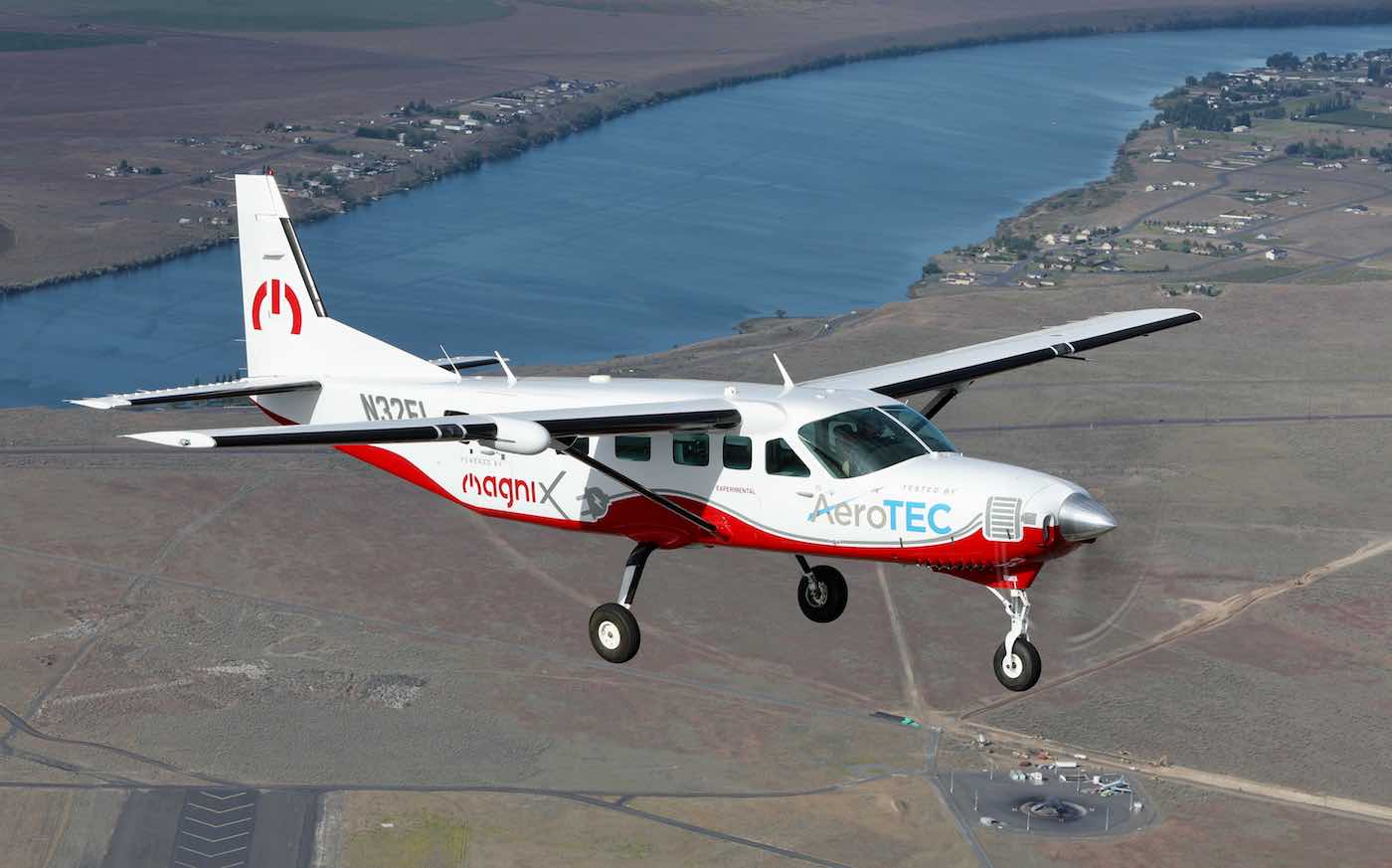
Yesterday, May 28 2020, was a historic day for electric aviation. The world’s largest all-electric plane took flight for the first time, spending 30 minutes flying over Washington. It is a sign of things to come, as the aviation industry now realises what was previously seen as ‘future technology’ arrive in a very real form today.
The all-electric plane is actually a Cessna Caravan retrofitted with an electric engine made by magniX, who hope the aircraft will enter commercial service by the end of 2021 and have a range of 100 miles. AeroTEC was also a part of this historic flight, who provided the test centre and contributed the work of its engineers and flight team to support the mission.
The 750-horsepower propulsion system achieved 98.5% efficiency, just shy of the 100% of a jet engine, the standard type used in airliners today. The issue with electric aircraft, however, is the weight and size of the batteries which are used to store the energy required to actually propel the aircraft. Today’s battery technology is not light, nor efficient enough to sustain a long-haul flight. This major issue needs fixing before all-electric planes become the norm.

There is significant incentive to solve these issues, as the all-electric plane market could potentially be worth $22 billion. Whilst experts suggest that we are 20 years away from having a complete conversion to all-electric, the rising environmental and social pressure piling onto the aviation industry for continuing to pollute so heavily may lead to an acceleration of development.
The primary requirement is money and ingenuity for this transformation to take place, but with the aviation industry now lying in coronavirus-induced ruins and barely staying afloat, the industry’s attentions are firmly elsewhere, for the time-being at least. Without government pressure or incentives, change is not likely to take place in this regard, unless someone with the resources and social awareness of the likes of Elon Musk turns his attentions to the issue. There are many in the world who could join this fight, but right now, it is simply not worth it. This bodes badly for our environment which is already being ravaged by mass pollution. All-electric flights need to be developed and brought into fruition as soon as possible.
